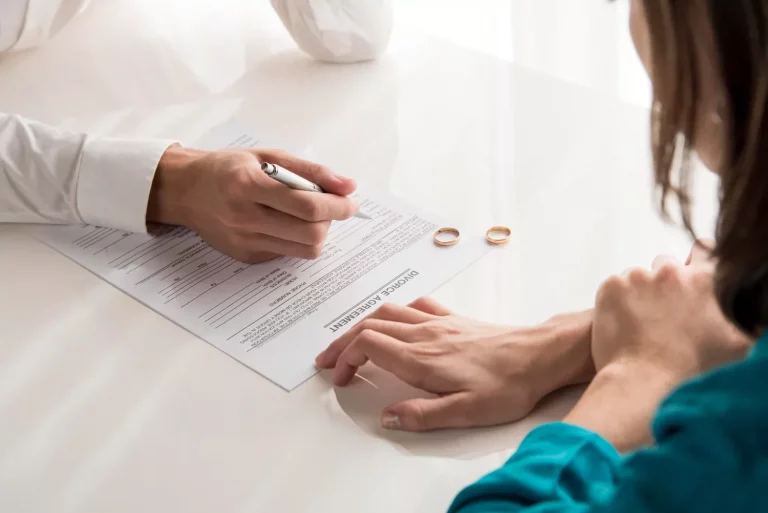Orgasm Issue Post-Divorce: Causes and Solutions
Have you ever wondered why you can’t have an orgasm with your new partner after your divorce in April? At TheBostonDivorceLawyer, our experienced lawyers understand the complexities of relationships and can provide insight on this issue. Dive into our article to discover potential reasons and solutions for this common concern.
As stated in the American Psychiatric Association’s Diagnostic and Statistical Manual of Mental Disorders, difficulty experiencing orgasm can be a symptom of conditions such as depression or anxiety, which may be affecting your ability to reach climax with your new partner after your divorce. It is important to consult with a qualified mental health professional for an accurate diagnosis and appropriate treatment.
Physical Changes
Your body might react differently to sexual stimulation for several reasons. Stress and your emotional state can affect your ability to orgasm. It’s also possible that your new partner isn’t providing the same type of stimulation you need. Changes in hormone levels or medications you’re taking can impact your sexual response as well. Factors like age and overall health can influence how your body works sexually too.
When all is said and done, talking with your partner about what feels good and what doesn’t is important. Trying new techniques or different approaches together might improve your sexual experience. If you still have trouble reaching orgasm, consider consulting a healthcare provider or therapist. Remember, it’s normal for your body to react differently in new situations, and adjusting to changes takes time. Be patient with yourself and your body during this transition.
Emotional Factors
My point is, going through a divorce can leave you with a lot of emotions that might make it hard to connect deeply with a new partner. Feelings like guilt, shame, or insecurity from your past relationship can stop you from fully enjoying being with someone new. You might also struggle with trust or fear of being hurt again, which can make it hard to relax and enjoy intimate moments.
The stress and anxiety from your divorce can keep you from being present and fully engaged in new sexual experiences. To be fair, it’s important to work through these emotions to move on and have a healthy relationship with your new partner.
Talking openly with your new partner about how you feel can help build trust and create a safe space for intimacy. It might also be helpful to see a therapist or counselor to deal with any emotional issues affecting your ability to orgasm with your new partner. Remember to be patient with yourself and give yourself time to heal and rebuild your sexual confidence in this new chapter of your life.
Communication with Partner
After going through a divorce, it can be tough to feel comfortable with someone new. You might feel unsure or self-conscious, making it hard to relax and enjoy the moment.
It’s important to talk to your partner about your feelings. Share any worries or fears that might be stopping you from enjoying yourself. Building a strong emotional bond can help create a safe and supportive place for both of you.
Don’t be afraid to communicate your desires during intimacy. Frankly, your partner might not know what you like, so giving them feedback can be helpful. Trying different techniques or exploring new things together can also improve your sexual experience.
Remember, everyone is different, and it might take time to adjust to a new relationship after a divorce. Be patient with yourself and your partner, and work on building trust and understanding. By openly communicating and listening to each other’s needs, you can move towards a fulfilling and satisfying intimate relationship.
Mental Blockages
Basically, these mental blocks can come from various sources, such as leftover feelings from an old relationship, guilt or shame, fear of getting hurt again, or simply adapting to being with someone new. It’s important to recognize these issues and work through them so you can connect fully with your new partner. Talking to a therapist or openly discussing your feelings with your partner can help.
Frankly, practicing self-care, relaxation methods, and trying new ways to build intimacy can also help. Remember, it’s normal to face these mental challenges after something significant like a divorce. Healing and moving forward takes time, so be patient with yourself and allow space for growth in this new part of your life.

Exploring New Techniques
In other words, divorce can make it hard to relax and enjoy intimacy. It might take some time to feel comfortable and trust a new partner, which can affect your ability to reach orgasm. Talking openly with your new partner about your needs and worries can create a safe space for exploration.
To be fair, trying new things like sensual massage can also help improve pleasure. Everyone’s body and preferences are different, so be patient with yourself as you figure out what works best for you. Seeking help from a therapist or sexual health expert can give you extra advice and strategies. Remember, pleasure and intimacy are personal and can change over time.
The Final Word
It is common for individuals to experience difficulties achieving orgasm with a new partner after a divorce. This could be due to a variety of factors, such as emotional barriers, stress, or unresolved feelings from the previous relationship.
What TheBostonDivorceLawyers is encouraging you to keep in mind is, it is important to communicate openly with your partner, take time to heal and explore your own desires in order to overcome this challenge.







